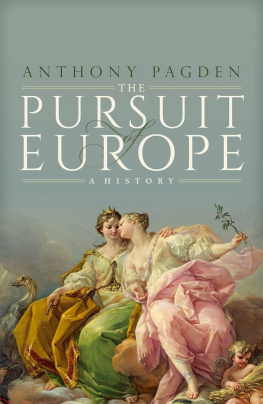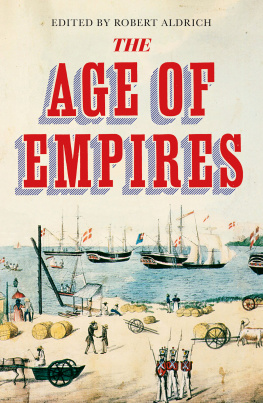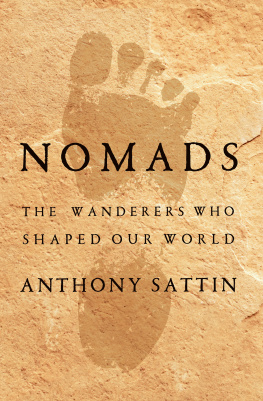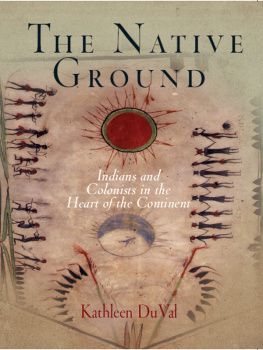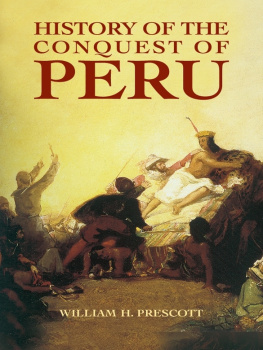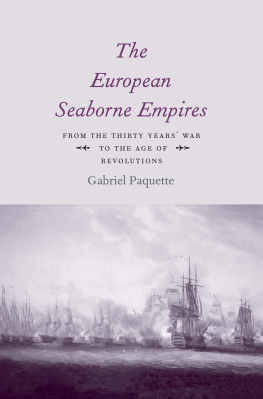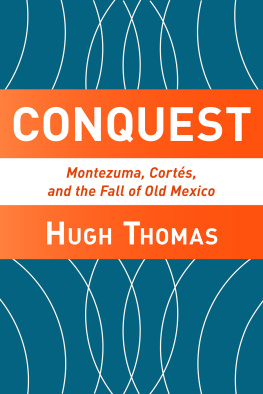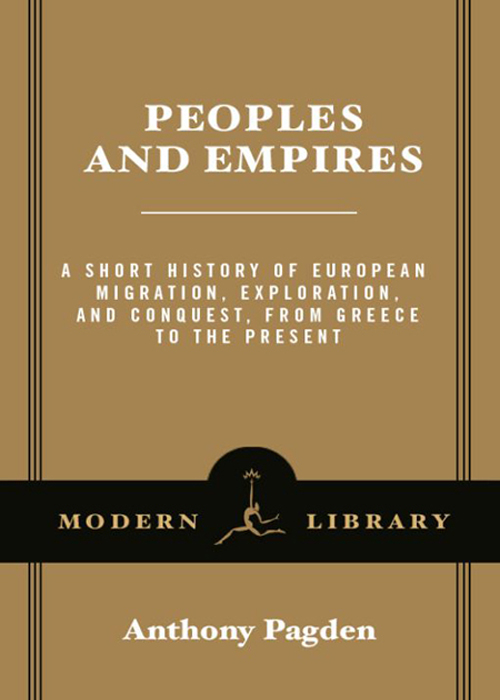
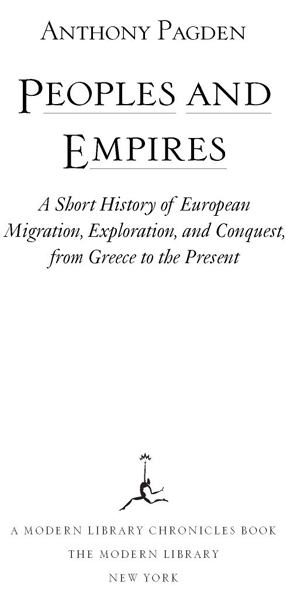
Table of Contents
FOR GIULIA
Modern Library Chronicles
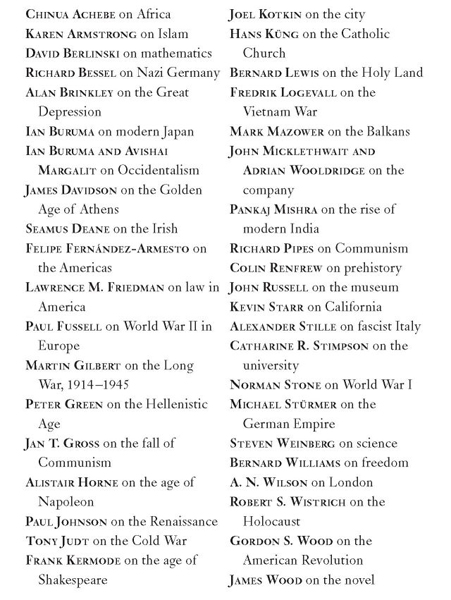
PREFACE
This is a very short book on a very big subjectso big indeed that it could simply be described as the history of the world. It is the story of the transformation of groups of peoples into the massive states we call empires. However we choose to define the termand it is, at best, a vague onethere have been empires in Africa, in Asia, in the Americas, and in Europe. I am, however, largely concerned with the story of those empires of what is now called the west, from the rise of Alexander the Great to the collapse of the Soviet Union. I discuss China and Vijayanagara and Safavid Iran only insofar as they touch upon that story. This is not because I imagine, as some do, that the Chinese or the Indians or the Iranians ultimately lacked the inventiveness, imaginative drive, or individuality that supposedly allowed the Europeans to dominate so much of the world. It is simply that since those other places have had their own histories, which have gone in sometimes quite different directions, it would require other books to tell them fully.
As is necessary with any book that tries to cover so much ground and so much historical time, I have relied on the goodwill of colleagues and friends to provide me with information and advice. Bill Rowe and Matthew Roller patiently answered my questions about the Chinese and Roman worlds respectively. I have learned from Sanjay Subrahmanyam and Serge Grunzinski how to think globally, as much as about the individual histories of India, Iran, and Spanish America. I owe a very special debt to the students of my class on empires and imperialism at the School for Advanced International Studies in Washington, who provided me with information, questioned my more dubious assertions, and, in their polyglot cosmopolitan enthusiasms, taught me much about the roots of restlessness. An earlier version of the text was read with great care by Toby Mundy at Weidenfeld & Nicolson and by Scott Moyers at Random House, and their careful, detailed comments have improved the final version immeasurably. I am grateful to them for their patience and perceptiveness. I am grateful, too, to Rebecca Wilson and Alice Hunt for their guidance in the final stages.
Giulia Sissa taught me about ancient Greece, and about life, and to her all of this is gratefully dedicated.
PARIS, August 2000
CHRONOLOGY
B.C. Darius I, Persian emperor, crosses the Bosphorus into Europe.
B.C. Battle of Salamis. Greeks destroy the Persian fleet, thus averting a full-scale invasion.
B.C. Alexander the Great crosses the Dardanelles and begins the destruction of the Persian Empire.
B.C. Death of Alexander the Great.
B.C. Battle of Pydna. Roman armies put an end to the Macedonian monarchy.
B.C. Assassination of Julius Caesar.
B.C. Creation of the Roman Principate under Augustus. A.D.
The Roman emperor Caracalla extends citizenship to all free inhabitants of the empire.
Constantine the Great founds a new capital at Byzantium and names it Constantinople.
Alaric the Goth sacks the city of Rome. Roman rule comes to an end in the west.
Justinian, emperor in the East, begins the codification of all Roman law.
Charles I, king of the Franks (Charlemagne), crowned by the pope as emperor.
1071 Seljuk Turks take the city of Jerusalem.
10951291 Eight major Crusades, armed expeditions under the aegis of the papacy, attempt, unsuccessfully, to recover Jerusalem.
140533 Voyages of the treasure fleet of the admiral Zheng He.
1453 Ottoman Turks seize Constantinople, rename it Istanbul, and put an end to the Byzantine Empire.
1492 Christopher Columbuss first transatlantic voyage.
149799 Vasco da Gama sails to India via the Cape of Good Hope.
1519 Charles of Habsburg elected Holy Roman Emperor.
151922 Spanish fleet under Ferno de Magalhes (Magellan) completes first circumnavigation of the globe.
1521 Spanish forces under Hernn Corts overthrow the Aztec Empire. Martin Luther appears before the Diet of Worms.
1529 Ottoman army of Sleyman the Magnificent lays siege to Vienna.
1533 Francisco Pizarro seizes the Inca capital of Cuzco.
1534 First voyage of Jacques Cartier to the Gulf of St. Lawrence.
1580 Philip II of Spain acquires Portugal, thus uniting the empires of the two kingdoms.
1581 Dutch declare independence from Spain.
1583 Sir Walter Raleghs expedition to Guiana.
1600 Charter of the East India Company.
1607 English settlement at Jamestown.
1618 Outbreak of the Thirty Years War.
1620 Voyage of the Mayflower.
1648 Conclusion of the Thirty Years War, Treaty of Westphalia, creation of the European state system.
1668 East India Company takes over Bombay.
1690 English settlement at Calcutta.
1756 Outbreak of Seven Years War.
1760 New France surrenders to the British.
1763 Peace of Paris brings Seven Years War to an end, leaving Britain in possession of most of North America.
1768 Captain Cooks first voyage.
1771 Publication of Antoine de Bougainvilles Voyage autourdu monde.
1772 Cooks second voyage.
1776 Declaration of American independence. Publication of Adam Smiths The Wealth of Nations, Edward Gibbons Decline and Fall of the Roman Empire. Start of Cooks last voyage.
1779 Death of Cook in Hawaii.
178895 Trial of Warren Hastings, governor of Bengal.
1789 Beginning of the French Revolution.
1791 Slave revolt in St. Domingue (now Haiti).
1793 Lord Macartneys embassy to China.
1803 Beginning of the Napoleonic Wars.
1806 Holy Roman Empire comes to an end.
1807 British abolition of the slave trade.
181021 Spanish-American Wars of Independence.
1815 Battle of Waterloo, end of Napoleonic Wars, Napoleon exiled to St. Helena. Britain takes control of the Cape Colony (South Africa) from the Dutch.
1829 Suttee abolished.
1830 French occupy Algeria.
183942 Opium Wars between Britain and China.
1853 David Livingstone crosses the continent of Africa.
1858 Abolition of the East India Company.
1859 Publication of Charles Darwins Origin of Species.
1869 Opening of the Suez Canal.
1876 Queen Victoria becomes empress of India.
1888 Abolition of slavery in Brazil.
1890 Cecil Rhodes made prime minister of Cape Colony.
1900 Boxer Rebellion in China.
1908 End of the Ottoman Sultanate and creation of the modern Turkish Republic.
1911 Abolition of the Chinese Monarchy.
191418 First World War.
1917 Creation of the USSR.
193945 Second World War.
1944 Bretton Woods Conference establishes World Bank and International Monetary Fund.
1945 Establishment of the United Nations.
1947
Next page

